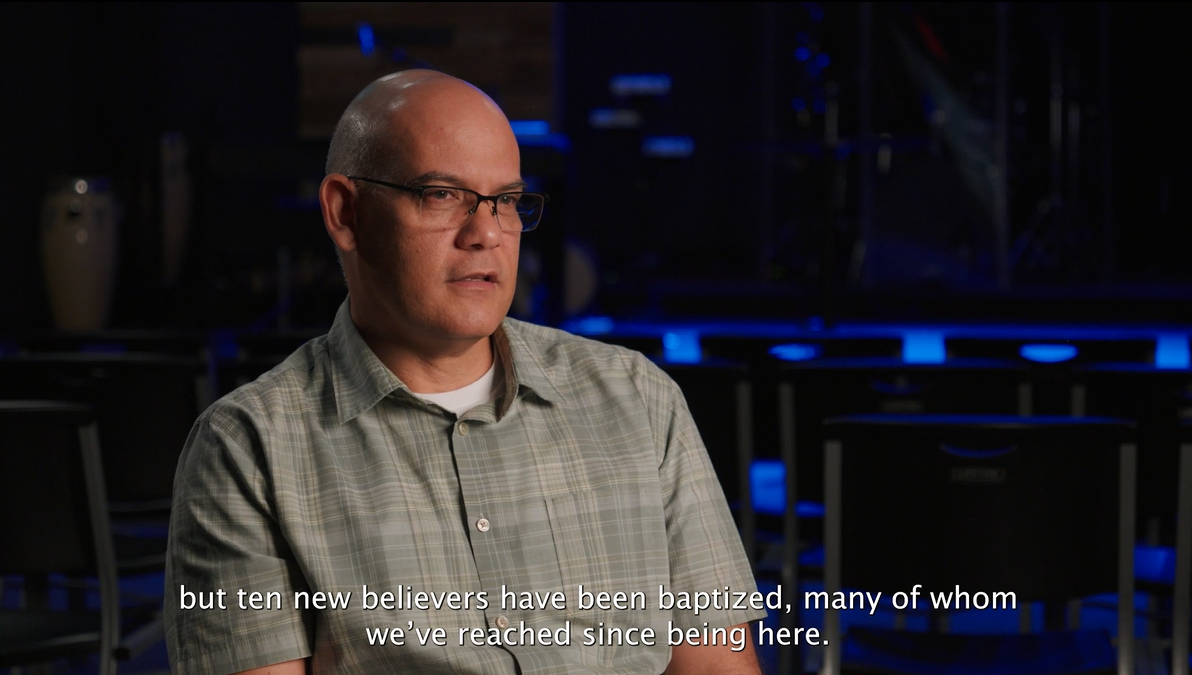Five Loaves and 2 Fishes: Leveraging Faith and Collaboration for Churches with Fewer Resources
Three years ago, I returned to my old neighborhood in the Dominican Republic on a mission trip and was astonished to find that the small, resource-strapped church I remembered had transformed into a thriving hub of community service. In spite of their minimal resources, they were growing exponentially through steadfast faith.
It's not about waiting for external help but about recognizing the potential in what we’ve already been given and stepping out in faith to see how God can work through it.
I was convinced this story must be unique and rare. Then two years ago, I visited another church in the Dominican Republic that began with just a few people in a neighborhood struggling with homelessness and neglect. Despite being in a tourist area where the homeless were often unwelcome, a determined leader planted a church with no resources; today, it's a thriving ministry that provides more than 100 meals daily and offers hope and support to those in need.
This year, I experienced another great shock when I visited Costa Rica and saw the same incredible transformation: a marginalized community where a leader, with few resources, believed God could bring change. Twenty years later, that community now has more employers than any other company in the city, along with a school, elderly homes, and centers for abused women, children, and youth—all built from nothing but faith and determination.
The 5 - 2 Principle
When asked how they managed to achieve all of this, they all pointed to the same principle: the principle of 5-2, based on the feeding of the 5000 in Matthew 14:13-21. If you're unfamiliar with the narrative in Matthew 14:13-21, it tells the story of a great multitude following Jesus.
Moved by compassion, Jesus instructed His disciples to feed the crowd. They protested, pointing out that there was no place to buy food and that it would cost a fortune to feed so many people. Then Jesus asked, "What do you have?"
They found five loaves of bread and two fish, which Jesus took, blessed, and miraculously multiplied to feed 5,000 men, plus women and children. Amazingly, there were even 12 baskets of leftovers afterward.
A typical focus on this narrative is often on encouraging churches or pastors to serve God despite their needs, with the expectation that God will provide—typically through some outside source of money or resources masquerading as God's provision. However, I think this narrative is more liberating than we care to admit.
It's not about waiting for external help but about recognizing the potential in what we’ve already been given and stepping out in faith to see how God can work through it. As my friend Robert Gerrero vice president of City to City North America, commenting on this narrative says:
“The strategy implemented by Jesus regarding “missions” provides us with a guiding principle in serving relationships where one party comes from a position of power and the other from weakness and scarcity of resources. The focus of the story is not just on the outcome (thousands of people being fed), but on the process, which is much more important.”
Putting It Into Practice
As I reflect on how this narrative unfolds, coupled with the experiences I've had over the past three years during those mission trips, I suggest the following:
1. Start with what you have.
Jesus could have provided for bread and fishes from nothing (ex nihilo). But in the story, Jesus asked them to identify what was already available—five loaves and two fish.
Similarly, churches with fewer resources should assess and utilize what they already have, no matter how small it seems. The key is not the quantity but the willingness to offer it to God for His purposes.
2. Focus on the process, not just the outcome.
The miracle wasn’t just about feeding 5,000 people; it was about how provision came. Jesus involved His disciples in the process, teaching the principles that should govern the kingdom of God.
Pastors and churches called to minister amongst the poor and marginalized must use different strategies. In churches like the ones in Dominican Republic, in Costa Rica, and the one in Houston that I pastored for 17 years, the focus should always be to engage ministry with faith, understanding that the process is about serving, loving, and giving, even with limited resources. Living this kind of ministry is itself transformative and significant in God's Kingdom.
3. Live in Community and Shared Responsibility.
Jesus offers His Kingdom's alternative: His community. It's as if He says, "I know it's not even enough for you, but the compassion of the gospel shows its power precisely through need, weakness, and scarcity—unlike the kingdoms of this world.”
We need to foster a sense of community and shared responsibility. This might mean encouraging church and community members to contribute their time, skills, and whatever resources they have, no matter how small, to the collective mission of bringing the SHALOM of our community and city.
In essence, Jesus provided for the 5,000 as a blueprint for all churches in our city, a KINGDOM OF GOD approach to ministry—starting with what we have, focusing on the process of faithful service, fostering community involvement, and seeing beyond our limitations to the possibilities that God's kingdom offers.
Pastor and churches ministering in the context of scarcity can begin by asking questions like:
What process can help us better identify and utilize existing resources in their community that are often overlooked?
How can we foster a stronger sense of community involvement and shared responsibility, particularly in contexts of scarcity?
How can churches that are resource-poor engage effectively with entities in positions of power and resources without compromising their mission or integrity?
If you want to know more about this topic, Iglesia Floreciente is a training design to address these and other questions that churches ministering in marginalized communities face on a daily basis.
If interested, contact me at victor@ubahouston.org.
Victor Marte is a UBA Church Consultant. His primary areas of responsibility include church planting, leadership development, and new church development. Victor is bilingual and available to consult with congregations in English or Spanish.
Este modelo de discipulado orgánico no se trata de imponer un programa rígido, sino de permitir que las personas crezcan a su propio ritmo en diferentes contextos. Es una invitación a un estilo de vida donde las relaciones auténticas y las disciplinas espirituales se entrelazan para producir una multiplicación natural de líderes y creyentes apasionados.
En un mundo que a menudo busca atajos, el discipulado orgánico nos recuerda que el verdadero crecimiento requiere tiempo, intencionalidad y relaciones profundas. Como iglesia, este camino no solo nos renueva, sino que también nos equipa para impactar nuestras comunidades de una manera más efectiva.
La invitación está sobre la mesa: ¿Estás listo para iniciar este camino? El discipulado no es solo una tarea, es una oportunidad de experimentar la plenitud de la amistad con Dios y compartir ese gozo transformador con otros.
Para más información, puedes escribirme a victor@ubahouston.org.
Victor Marte servira principalmente a las congregaciones hispanas y a las congregaciones que desean alcanzar a la comunidad que habla Español. El pastor Marte en la actualidad esta colaborando con Lideres Transformadores en el equipo de UBA y ha sevido en el liderazgo en la ciudad por algunos años.
We’ll send one succinct weekly email
with the best news, events, and info
for churches in the Houston area.
Photo by Dave Hoefler on Unsplash













¿Cómo podemos plantar iglesias que enriquezcan la comunidad, amén la ciudad y contribuyan al shalom urbano?